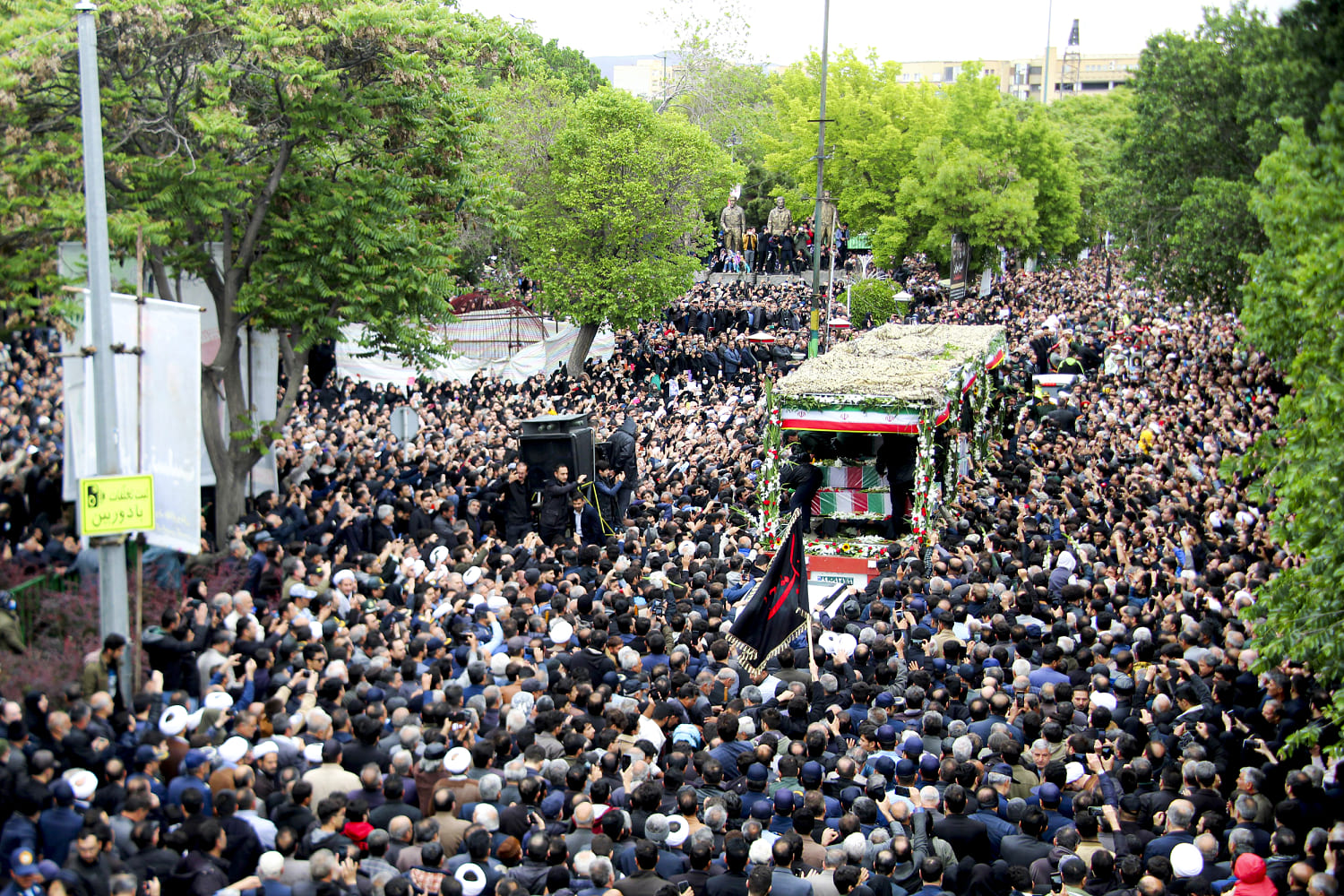
The sudden death of a leader will shake any country, but the crash that killed President Ebrahim Raisi comes at a particularly precarious moment for Iran and the Middle East as a whole.
The Islamic Republic is a regional giant that can ill afford a wobble at the top.
Abroad, it is engaged in a shadow war with Israel that has come terrifyingly close to spiraling into an open regional conflict. At home, it is grappling with a long-running economic crisis that’s been joined by social turmoil, as brutal protest crackdowns have caused a widening chasm between the ultraconservative religious elite and the more liberal youth.
Raisi, 63, was seen by many as a pliant figurehead, chosen for his loyalty to Ayatollah Ali Khamenei, Iran’s aging supreme leader. While this may not change any immediate policies — foreign or domestic — many observers believed him to be a front-runner to replace Khamenei, 85, and his sudden death could upend the battle to helm the theocratic regime as it confronts these challenges.
